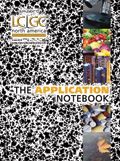Planning a Busy Summer at LCGC
The Application Notebook
Traditionally, summer is a time when the worlds of lab research and business slow down to a large extent. If you work in academia, chances are many of your students have returned home for the summer and the teaching load has been reduce, while those of you working in private industry and research labs may see coworkers taking long-anticipated (and well-deserved) vacations.
Traditionally, summer is a time when the worlds of lab research and business slow down to a large extent. If you work in academia, chances are many of your students have returned home for the summer and the teaching load has been reduce, while those of you working in private industry and research labs may see coworkers taking long-anticipated (and well-deserved) vacations. However, at here at LCGC, we have more going on this summer than ever, as we know all too well that the issues facing researchers and society at large will not be slowing down for the summer months.

Michael J. Tessalone
One of the most ambitious projects underway is LCGC's extensive lineup of educational web seminars that are planned for this summer and beyond. The July 14 UHPLC event, hosted by Genentech's Michael Dong, kicks things off, and is titled "Recent Advances in UHPLC Column Technology: Implementation of UHPLC for GMP and QC Testing." Following on the heels of this event will be the September 1 event on one of the industry's hottest topics, green chemistry, titled "Green Chemistry and SFC: Ways to Save in the Lab." And later this fall on November 1, we will be hosting "LC and LC–MS in the Pharmaceutical Industry: Metabolite Analysis." Add to this the archived, OnDemand event by Seton Hall's Nick Snow, "Melamine and Beyond: GC Analysis of Food and Beverage," recorded earlier this spring, and we think you'll find that LCGC is amassing one of the most extensive and valuable collections of educational web seminars in the industry. To register for these upcoming events and to view any of our archived OnDemand events, please visit: http://chromatographyonline.findanalytichem.com/Webseminar
In the meantime, we hope you will find this current issue of the Application Notebook as helpful and informative as always. With economic and scientific forces driving the market and compelling research labs to find innovative scientific solutions to serious problems in the most cost-effective way possible, we think this supplement is more critical than ever to the separations laboratory.
Enjoy the issue.

Michael J. Tessalone
Science Group Publisher

Regulatory Deadlines and Supply Chain Challenges Take Center Stage in Nitrosamine Discussion
April 10th 2025During an LCGC International peer exchange, Aloka Srinivasan, Mayank Bhanti, and Amber Burch discussed the regulatory deadlines and supply chain challenges that come with nitrosamine analysis.



















